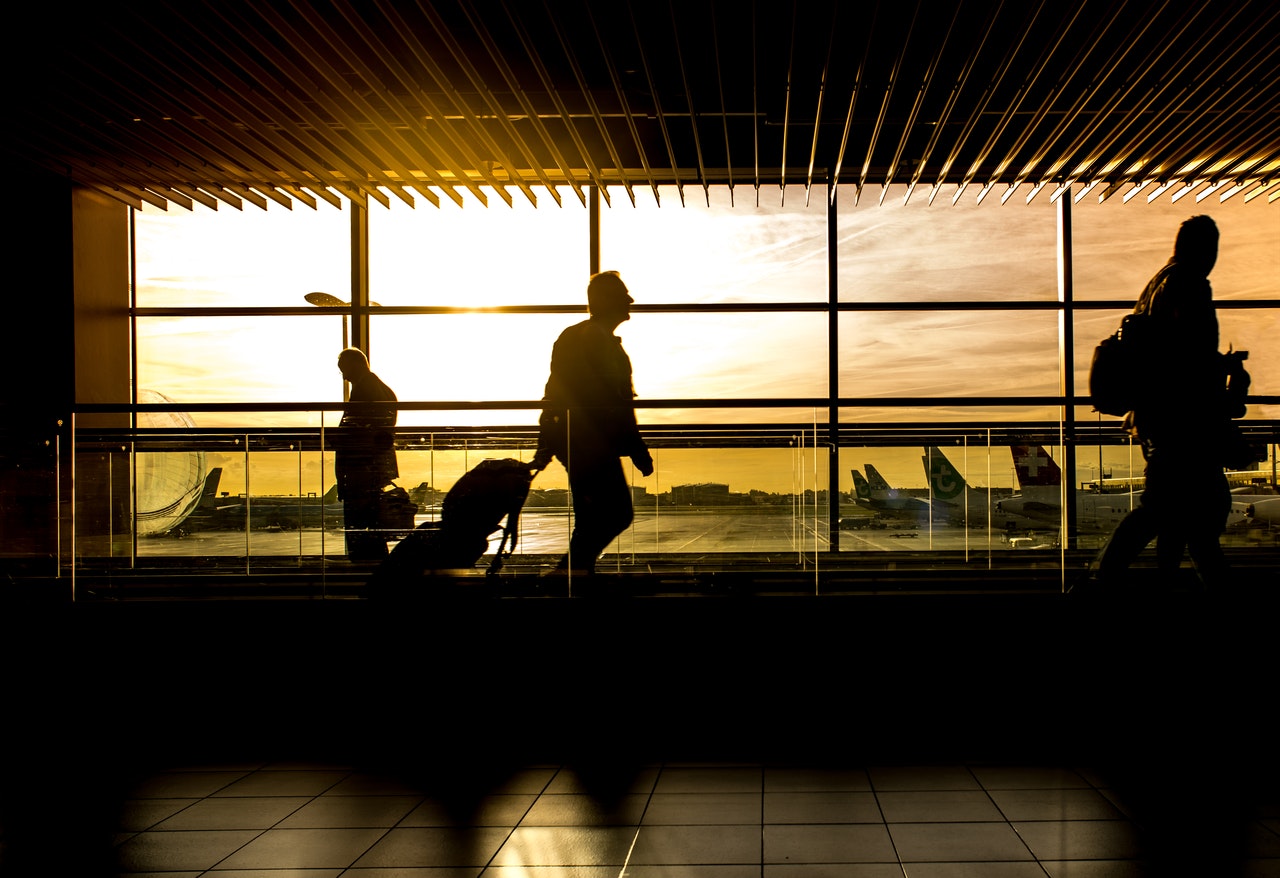9 Flight Attendant Travel Tips You Should Know
Flight attendants travel frequently and have exposure to destinations worldwide. As a result, they have some of the best insights out there.

Many people turn to sources like the internet, travel bloggers, travel agents, and friends to get travel information and find travel guides. However, if you’re traveling by plane, you have another resource you might not have thought about.
That resource is flight attendants.
Flight attendants travel frequently and have exposure to destinations worldwide. As a result, they have some of the best insights out there.
We decided to compile some of the best tips from flight attendants and share them with you.
Here are nine flight attendant travel tips you should know before your next trip!

Book a Morning Flight
One travel tip that many flight attendants know about is booking morning flights. You will want to travel as early as possible because mornings have a lower risk of flight delays.
During the day, flight cancellations and delays happen. These changes have a snowball effect as the day goes on. There is a much higher chance these could affect your travel if you book a flight later in the day.
Save some of the hassle and book a morning flight. Early trips will allow you to get to your destination on time and give you plenty of time to explore.
Arrive Early at the Airport
You can set the tone for your journey before you get on the plane by arriving early at the airport.
Some people swear they can make it on time by arriving last minute, but why cause extra stress for yourself?
For domestic flights, you should arrive at least two hours before departure and at least four hours before departure for an international flight.
Times can vary by airport, but it’s always a good idea to get there early to account for lines at check-in and security. You never know when there will be a delay, and you could miss your flight.

Bring a Reusable Water Bottle
Flight attendants know better than anyone how dry the air is on board. So another recommendation is to bring a reusable water bottle to keep you hydrated throughout the flight.
You will need to empty any water in it before security. Once you pass through security, most airports have refillable water stations.
The small cup of water airlines hand out during the flight usually is not enough to keep you hydrated, and the plastic cups are also terrible for the environment. Additionally, ice scoops on board are not always the cleanest.
The best solution is to fill your reusable water bottle before you leave.
Wipe Down the Air Vent
In the age of COVID, everyone is looking for travel tips for flying to keep them safe and healthy.
Flight attendants recommend wiping down your air vent before sitting down with a wet wipe. Cleaning them out will ensure that they are sanitary for use.
Additionally, you can use the air vents to buffer airborne illnesses. The HEPA (high-efficiency particulate air) filters on the plane can remove 99.9% of bacteria and viruses in the air. Pointing an overhead air vent downward can create a cone of protection to ward off germs from other passengers.
Don’t Overpack
Flight attendants know more than anyone that overpacking leads to more stress.
Stuffing your suitcase is an instinct. It’s tempting to pack for every “what if” scenario imaginable. However, there are downsides to stuffing your luggage and benefits to keeping it light.
Bringing too much can cost more. For example, an overweight suitcase can cost you at the airport because many airlines charge if your belongings are too heavy.
Additionally, traveling light makes it easier to get out of the airport quickly and hit the ground running at your destination.
Besides, you can find almost everything you need at most destinations if you forget something.

Don’t Exchange Your Money at the Airport
If you’re planning on going abroad, chances are you will need to exchange your currency. Airports have convenient exchange centers where you can convert your money.
Unfortunately, while convenient, airport kiosks have notoriously unfavorable exchange rates.
You can either exchange your currency at a local bank or a bank in your home country. Another way to withdraw cash is to use a debit card at an ATM in the country you’re visiting. Keep in mind that some debit card companies charge a foreign transaction fee.
Also, do some research on the country you’re visiting. You may not need as much cash as you think.

Don’t Use Your Seatback Pocket
Flight attendants find belongings people leave behind all the time. It’s not uncommon to find a phone, passport, wallet, or even a tablet left behind someone’s chair. For that reason, they recommend avoiding storing personal items in the seatback pocket as much as possible.
It is tempting to use the front of your seat to stash your cellphone or wallet for easy access. However, it only takes one distraction while you’re preparing to leave the plane to forget these belongings.
Try to store valuables in your personal item under your seat. Then, use the seatback pocket for things that aren’t as painful to lose, like your water bottle or snack.

Flight Attendants Can Be The Best Travel Guide
Many people forget that their flight attendants might be a wealth of knowledge on their destination.
Flight attendants tend to fly the same routes, so they often know all the best places to visit. You can ask them if they have any recommendations when they are not busy. For example, they might have insider information on the best places to eat, sights to see, and general tips for the area.
If they don’t have the information themselves, they can often point you to someone who does. Flight attendants tend to be well-connected to resources and information.

Avoid Flying While Sick
While this may seem like common knowledge, it happens more often than you think. Sometimes, it may be tempting to tough out a cold or an illness to get to your destination.
Unfortunately, there can be some severe repercussions if you do.
Not only can you spread germs to other passengers, but you can also damage your eardrums. You may experience extreme ear pain, vertigo, a ruptured eardrum, or hearing loss if you have a sinus or ear infection.
If you are not feeling well, try to reschedule your travel if possible and talk to your doctor.
Did you enjoy this article about flight attendant travel tips? Don’t forget to check out our other travel guides, travel tips when flying, and articles on this blog.





Responses